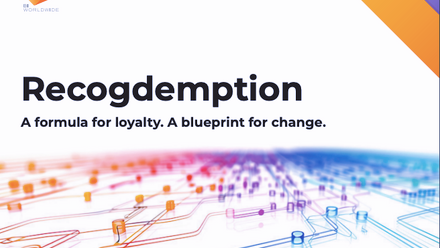Understand your organisation's DNA to get younger employees' benefits right

For that group – born from the mid-1990s onwards – the economic, political, social and educational landscape is shifting dramatically all the time. Slow economic recovery resulting in sometimes fragile employment opportunities, employers’ demands for certain skills that may not have been taught at school and the rising cost of education mean teenagers and those in their early twenties are often starting work with student debt and an urgent need to upskill.
In addition, mortgage lenders’ requirements for large deposits for properties coupled with a lack of access to affordable credit mean this generation is remaining at home with their parents for longer than previous generations. If they have left home, they are often stuck with rising rent costs.
We’re starting to realise a significant proportion of the population are concerned about their personal finances, and 18 to 24 year-olds are no exception. Our upcoming Neyber Workforce Study (to be released in April) will show 52% of this generation have been under financial stress in the last year and will go onto detail the source of these financial worries.
The problem for employers?
This post-millennial generation is predicted to make up 75% of the UK’s workforce by 2025 and the fact that a staggering one in five of them have already experienced serious financial problems should be a wake-up call for employers.
Why?
Because the worries caused by these kinds of problems will affect workers’ relationships with their line manager, their levels of absenteeism, presenteeism and productivity, and increase the numbers of mistakes they make.
Employers should consider their young employees in these situations because there is a strong business imperative. At the sharp end, the cost to businesses of accidents or breaches of safety – and worse – is usually significant, and can be insurmountable. Equally, the hidden costs associated with reduced productivity and increased absenteeism and staff turnover can be just as great.
One problem lies with the taboo that is talking about personal finances. Employers won’t know whether their employees are stressed because they simply don’t talk about it.
So employers should think about benefits they can offer to help. But we shouldn’t be thinking about benefits as products but rather considering what the benefit is for being our employee. A key part of the psychology of post-millennial workers is the idea that they work with, not for, their employer. That’s why we have to look at benefits in terms of how they benefit our employees.
It’s about understanding the DNA of our organisations and understanding what post-millennial workers – and all the other generations in your workforce – value.
For example, those at the start of their working lives are not likely to be thinking about their pensions, even though employers now have a legal requirement to offer them. This is not just because of their age, but because they have a different psychology than older generations. What’s the point in offering long-term benefits only accessible in 40 years’ time if that person only plans to stay with you for two or three years?
Attracting and retaining talent
One of the biggest challenges HR professionals face is how to attract and retain talent that lies within this post-millennial generation. The first step to offering attractive benefits to this generation of workers is to understand their psychology as well as their short and long-term concerns. This way, employers can offer benefits that are tailored to their incoming workforce and fit to last into the future.
This article was supplied by Neyber.






